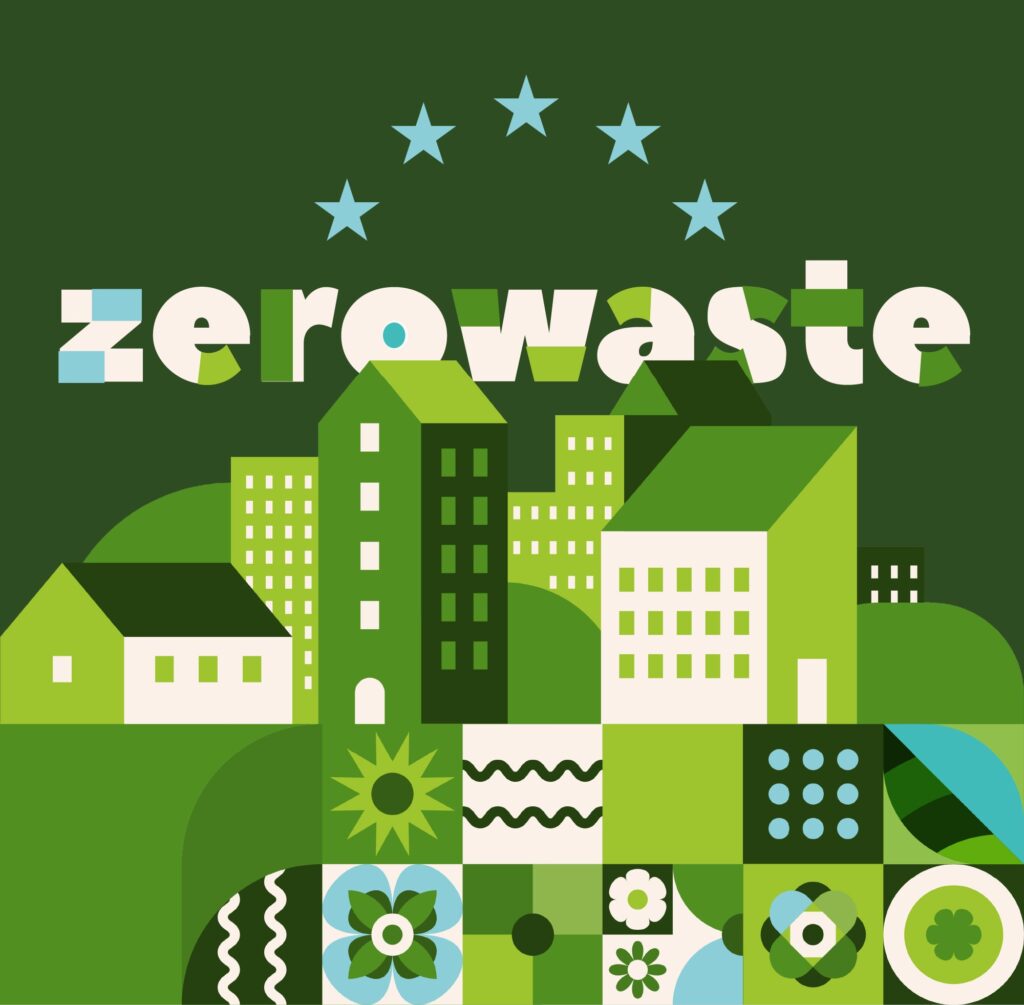Redefining Sustainability in Construction
The construction industry is one of the largest producers of waste globally, generating nearly 40% of the waste in the European Union alone. This includes everything from demolition debris to excess building materials, much of which could be reduced, reused, or recycled with better practices. Recognizing this critical challenge, the Zero Waste Project was created to revolutionize how construction waste is managed.
Why Zero Waste Matters
Construction and Demolition Waste (C&D waste) isn’t just a logistical problem; it’s an environmental crisis. This waste often ends up in landfills, contributing to pollution, greenhouse gas emissions, and resource depletion. However, it also represents an untapped opportunity. By adopting zero waste principles—Reduce, Reuse, Recycle, and Rebuy—we can:
- Conserve Resources: Reduce the demand for raw materials by reusing and recycling waste.
- Lower Emissions: Cut down on the energy-intensive processes of producing and transporting new materials.
- Promote Circular Economy: Transform waste into valuable resources, creating economic and environmental benefits.
The European Green Deal aims to achieve a 55% reduction in greenhouse gas emissions by 2030. Transforming construction waste management is key to reaching this target.
How the Zero Waste Project is Driving Change
The Zero Waste Project combines innovation, education, and collaboration to equip professionals in the construction sector with the tools they need to manage waste more sustainably. By integrating cutting-edge technologies like Building Information Modeling (BIM), Artificial Intelligence (AI), robotics, IoT, and 3D printing, the project aims to modernize waste management practices and reduce the environmental footprint of construction activities.
Upcoming Tools and Resources
While the full suite of resources is still under development, here’s a sneak peek at what’s to come:
1. Best Practices Guide
This guide will serve as a one-stop resource for sustainable construction strategies. It will include:
- Case Studies: Real-world examples of successful waste management initiatives.
- Technological Insights: How tools like BIM and robotics are making waste reduction more effective.
- Global Inspiration: Lessons from countries leading the charge in sustainable construction.
2. E-Learning and Networking Platform
An interactive platform designed to educate and connect professionals. Features include:
- Learning Modules: Training on the 4Rs (Reduce, Reuse, Recycle, Rebuy) with interactive content, videos, and self-assessments.
- Certification: A chance to showcase your knowledge with a certification upon course completion.
- Networking Opportunities: Connect with peers, share experiences, and collaborate on sustainable projects.
The Role of Technology in Zero Waste
The integration of technology is a cornerstone of the Zero Waste Project. Here’s how it’s reshaping the construction industry:
- BIM (Building Information Modeling): Helps architects and engineers plan efficiently, minimizing material waste during the design phase.
- AI and Robotics: Automate waste sorting and recycling, making processes faster and more precise.
- 3D Printing: Facilitates the reuse of materials in innovative ways, reducing the need for new resources.
- IoT (Internet of Things): Enables smarter waste tracking and management by monitoring materials in real-time.
Why This Project Matters to You
Whether you’re a construction professional, a student, or an environmental advocate, the Zero Waste Project offers tools, knowledge, and a network to help you:
- Implement sustainable practices in your projects.
- Stay informed about the latest innovations in waste management.
- Connect with like-minded individuals and organizations working toward a zero-waste future.
Join the Movement
We’re just getting started, and your involvement is key to driving meaningful change. Follow the Zero Waste Project on our social media channels for updates, insights, and opportunities to participate. Together, we can build a sustainable future where waste is a thing of the past.
